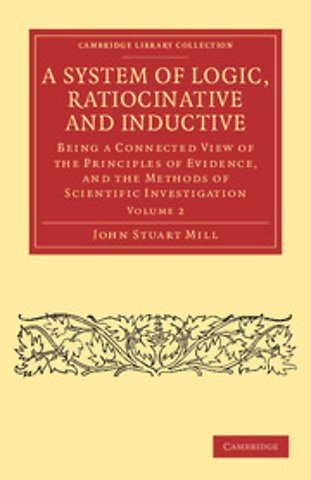A System of Logic, Ratiocinative and Inductive
Being a Connected View of the Principles of Evidence, and the Methods of Scientific Investigation
Paperback Engels 2011 9781108040891Samenvatting
This two-volume work, first published in 1843, was John Stuart Mill's first major book. It reinvented the modern study of logic and laid the foundations for his later work in the areas of political economy, women's rights and representative government. In clear, systematic prose, Mill (1806–73) disentangles syllogistic logic from its origins in Aristotle and scholasticism and grounds it instead in processes of inductive reasoning. An important attempt at integrating empiricism within a more general theory of human knowledge, the work constitutes essential reading for anyone seeking a full understanding of Mill's thought. Continuing the discussion of induction, Volume 2 concludes with Book VI, 'On the Logic of the Moral Sciences', in which Mill applies empirical reasoning to human behaviour. A crucial early formulation of his thinking regarding free will and necessity, this book establishes the centrality of 'the social science' to Mill's philosophy.
Specificaties
Lezersrecensies
Inhoudsopgave
Rubrieken
- advisering
- algemeen management
- coaching en trainen
- communicatie en media
- economie
- financieel management
- inkoop en logistiek
- internet en social media
- it-management / ict
- juridisch
- leiderschap
- marketing
- mens en maatschappij
- non-profit
- ondernemen
- organisatiekunde
- personal finance
- personeelsmanagement
- persoonlijke effectiviteit
- projectmanagement
- psychologie
- reclame en verkoop
- strategisch management
- verandermanagement
- werk en loopbaan
